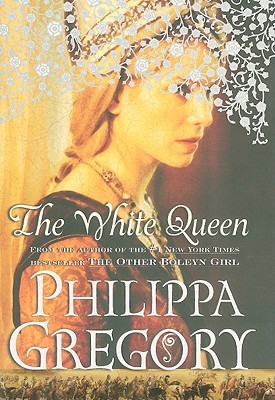Synopsis
Commoner Elizabeth Woodville goes from Lancaster loyalist to York queen.
My thoughts
The drama is lacking in what should be a riveting book. Elizabeth Woodville was a fascinating woman, the wife of Edward IV and the mother of the princes in the Tower. She was a commoner when she married Edward IV for love (some say she ensnared him with witchcraft) during a lull in England's tumultuous Wars of the Roses. Their union and her family's rise to power alienated some of Edward's staunchest supporters and contributed to Edward's overthrow and the restoration of Henry VI, the previous ruler. Edward fled to Flanders, leaving Elizabeth and their children to seek sanctuary in Westminster Abbey, where their fourth child (and first son) was born. Less than a year later, Edward reclaimed his throne and ruled in relative peace until his untimely death in 1483. His twelve-year-old son came to the throne as Edward V and his brother Richard, Duke of York, was named regent. But before Edward could be crowned, Richard declared Edward IV's marriage to Elizabeth Woodville invalid and their children illegitimate. This cleared the way for him to seize power as Richard III. Edward V and his only living brother (also named Richard) disappeared and were presumed to have been murdered by ... someone. Exactly who killed them and why remains one of history's most intriguing mysteries. (When I visited the Richard III Museum in York in 2006, there was a whiteboard that allowed visitors to write in their own suspects. There were votes for everyone from George W. Bush to the unpopular coach of England's national soccer team.) Anyway, by the end of The White Queen, Elizabeth is left not knowing whether her sons are dead or alive and she has entered into a secret alliance against Richard III with Margaret Beaufort, the mother of Henry Tudor, the heir to the Lancaster claim to the throne.
Elizabeth Woodville was a strong and determined woman and there's a lot of rich material to work with, but there's very little heart or soul to The White Queen. Instead it seems more like a 400-page laundry list of "this happened and then this happened and let's drop this name because it will be important in 80 pages." And the supernatural element that Gregory tries to include feels contrived and cheapens the actual history.
The strengths of the novel lie in Philippa Gregory's ability to breathe life into the uncertain parts of history - whether both princes died or one escaped, who killed them, and whether Elizabeth's eldest daughter (also named Elizabeth) fell in love with her uncle Richard III (ick). She also does a good job describing the futility and brutality of war, particularly a civil war.
I picked up this book because on August 10 STARZ will debut a new series based on The White Queen and the other books in Gregory's "The Cousins' War" series. The hook is that it's the Wars of the Roses from the perspectives of the women who played pivotal roles in the conflict. I probably won't reread this one, but I've already moved on to the next book in the series and I'm interested enough in Gregory's retelling of history that I'll probably read the rest of the books, too.
Bottom line
It's such an amazing story that I'd recommend it despite the lackluster storytelling.
Fine print
The White Queen, by Philippa Gregory
Genre: historical fiction
Photo from Goodreads
I bought this book.

No comments:
Post a Comment